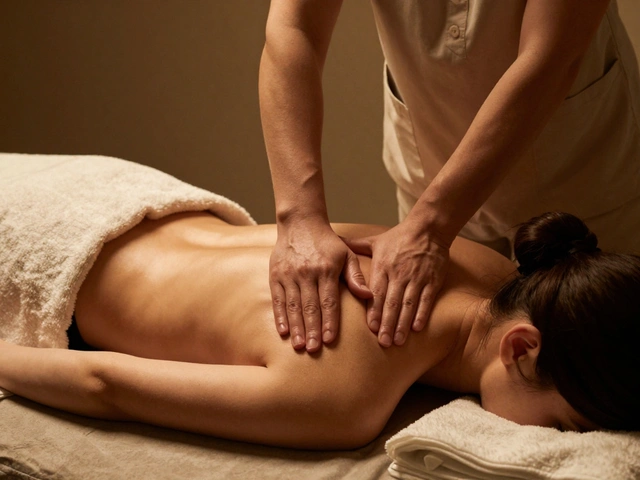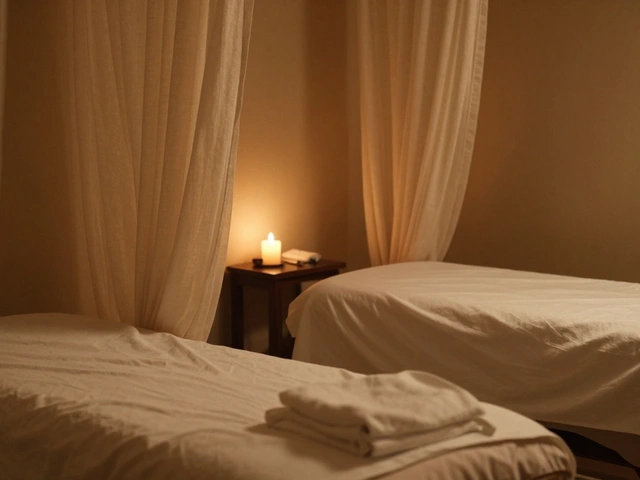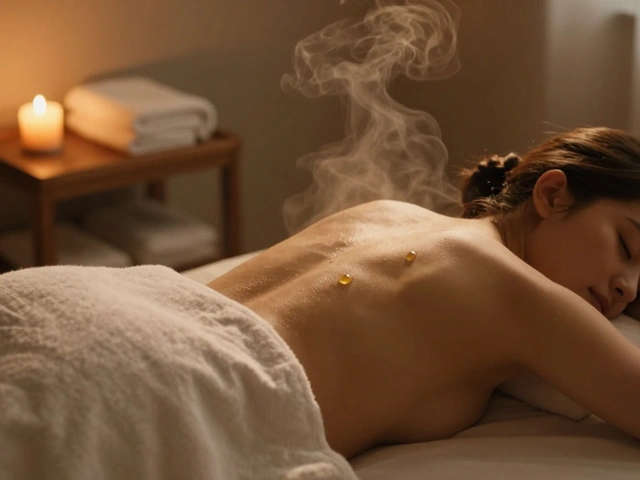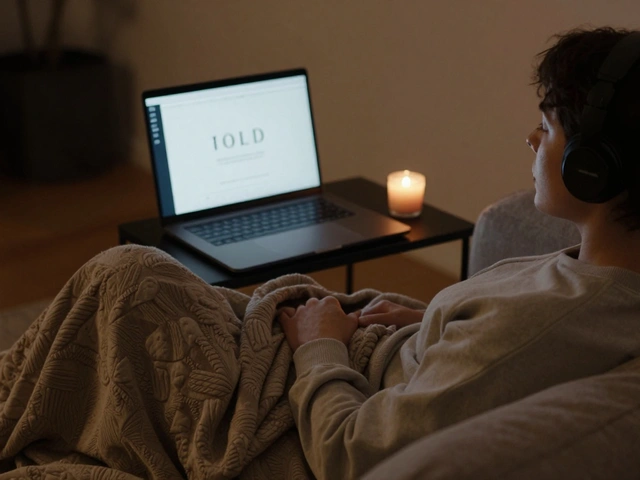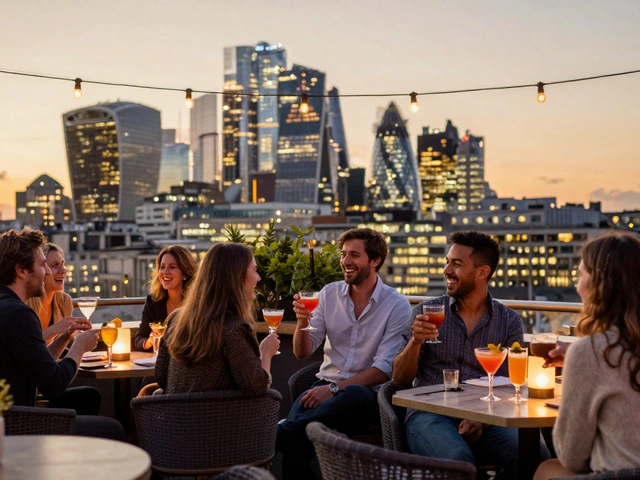Night Club Near Me - Beats Around You
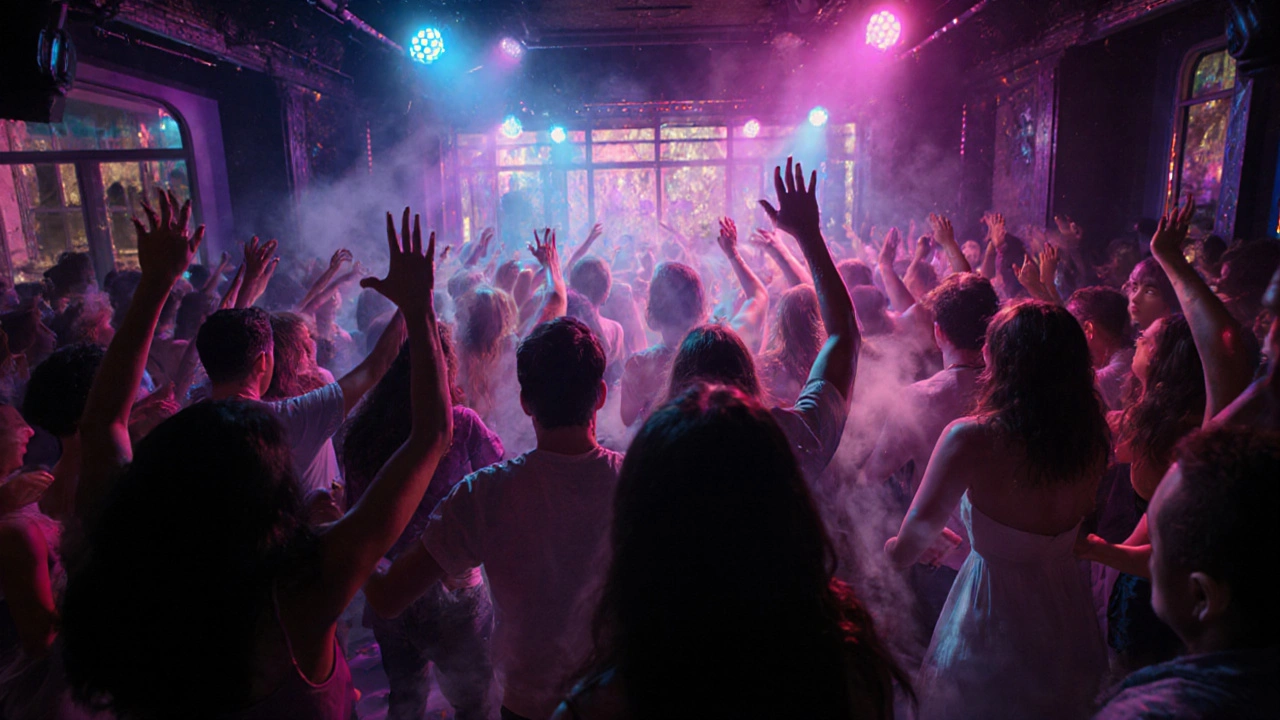
When you’re looking for a night club near me, you’re not just searching for a place to drink. You’re hunting for rhythm, connection, and a little escape from the ordinary. In Brighton, where the sea breeze meets neon lights and the bass drops harder than the tide, finding the right spot isn’t about proximity-it’s about vibe. This isn’t a list of bars with happy hours. This is your guide to the clubs that actually move you-where the music isn’t just played, it’s felt.
Understanding the Basics of Night Club Near Me
Origins and History
Nightclubs didn’t start as places to show off your dance moves. They began in the 1920s as underground jazz dens during Prohibition, where people gathered to escape the rules of the day. By the 1980s and 90s, cities like Brighton turned them into cultural hubs-places where queer communities, ravers, and indie kids found belonging. Today, a night club near me isn’t just a venue. It’s a living room for the city’s pulse. Brighton’s scene thrives because it’s never been about exclusivity. It’s about sound, sweat, and the shared moment when the whole room moves as one.
Core Principles or Components
A great club isn’t defined by its VIP section or bottle service. It’s built on three things: sound, space, and soul. The sound system has to be clean but powerful-no tinny speakers that kill the bass. The space needs room to move, not a packed crush where you’re sweating next to someone you don’t know. And soul? That’s the DJ who reads the crowd, the bouncer who knows when to smile, the lighting that shifts with the beat. These aren’t luxuries. They’re essentials.
How It Differs from Related Practices
Clubs aren’t bars. They’re not pubs. They’re not live music venues-even if they sometimes host bands. Here’s how they stack up:
| Feature | Nightclub | Bar | Live Venue |
|---|---|---|---|
| Primary Focus | Dancing & DJ sets | Drinking & conversation | Live performances |
| Music Type | Electronic, house, hip-hop | Background playlists | Band genres (rock, folk, etc.) |
| Atmosphere | Energetic, immersive | Relaxed, social | Observational, seated |
| Typical Crowd | 18-35, dance-focused | 25+, casual | Music fans, age varies |
Who Can Benefit from Night Club Near Me?
You don’t need to be a clubber to enjoy one. If you’re new to the scene, it’s a chance to feel alive in a way that’s hard to find elsewhere. If you’re a local who’s seen it all, it’s a reminder of why Brighton stays wild. Even introverts benefit-some of the best nights happen in the corners, watching the lights swirl while you sip something cold. Clubs welcome solo visitors, groups, couples, and everyone in between. The only requirement? An open mind and shoes you can dance in.
Benefits of Night Club Near Me for Your Mood and Social Life
Stress Reduction
There’s science behind why dancing feels like therapy. Moving to a beat releases endorphins and lowers cortisol. Studies from the University of Oxford show synchronized movement-even just swaying in a crowd-triggers bonding chemicals in the brain. In a club, you’re not alone in your stress. Everyone’s there to let go. The music becomes a collective exhale. You don’t need to talk. You just need to move.
Enhanced Social Connection
Clubs break down social barriers. You don’t need to be friends with someone to share a smile when the drop hits. In Brighton, it’s common to end up dancing with strangers who become friends by 2 a.m. These aren’t superficial connections. They’re real moments-shared glances, spontaneous hugs, someone buying you a drink because you both loved the same track. That’s the magic. It’s human connection without the small talk.
Emotional Well-Being
After a long week, stepping into a club can feel like hitting reset. The lights, the bass, the heat-it all pulls you out of your head. For many, it’s the only time they feel truly present. You’re not checking emails. You’re not thinking about bills. You’re feeling the music. That’s not escapism. It’s recharging. Brighton’s clubs don’t just play music-they create emotional space.
Practical Applications
Think of a club as a tool for mental hygiene. Regular nights out-once a month, even-can prevent burnout. It’s not about partying hard. It’s about giving yourself permission to be loud, silly, and free. Many locals in Brighton schedule a club night after a tough work week. It’s not a reward. It’s a ritual. And it works.
| Benefit | Description | Impact |
|---|---|---|
| Stress Relief | Physical movement + music lowers cortisol | Improved sleep, reduced anxiety |
| Social Reconnection | Non-verbal bonding through shared rhythm | Stronger sense of belonging |
| Mood Boost | Endorphin release from dancing | Longer-lasting positive mood |
| Self-Expression | Freedom to move, dress, be yourself | Increased confidence |
What to Expect When Engaging with Night Club Near Me
Setting or Context
Brighton’s clubs vary wildly. Some are tucked into old seaside piers, others hide behind unmarked doors in the Lanes. The vibe shifts depending on the night: Friday is packed, Saturday is electric, Wednesday might be a deep house night with only 50 people-but they’re all there for the right reasons. Dress code? Most places are casual. Jeans, sneakers, a cool shirt. No suits. No flip-flops. You’re here to move, not impress.
Key Processes or Steps
It’s simple: arrive, enter, feel. Most clubs don’t have long queues unless it’s a big-name DJ. Entry is usually quick-ID check, maybe a wristband. Once inside, the music pulls you in. No one tells you what to do. You find your spot. Maybe you dance near the speakers. Maybe you grab a drink and watch the crowd. The night unfolds organically. There’s no script. Just rhythm.
Customization Options
Not every club is for everyone. If you like techno, head to The Prince Albert. If you want pop hits and glitter, try The Old Market Assembly on weekends. Want underground beats and no cover charge? Check out The Green Door Store. Brighton’s scene is layered. You can tailor your night: early drinks, late dancing, quiet corners, loud floors. It’s your pick.
Communication and Preparation
Know the door policy. Some clubs check IDs strictly. Others are chill. Check their Instagram or website before you go. Bring cash for drinks-cards sometimes don’t work on busy nights. And if you’re going solo? That’s fine. Most people are. You’ll find your people. Just stay aware. Trust your gut. If something feels off, leave. Your safety matters more than the next track.
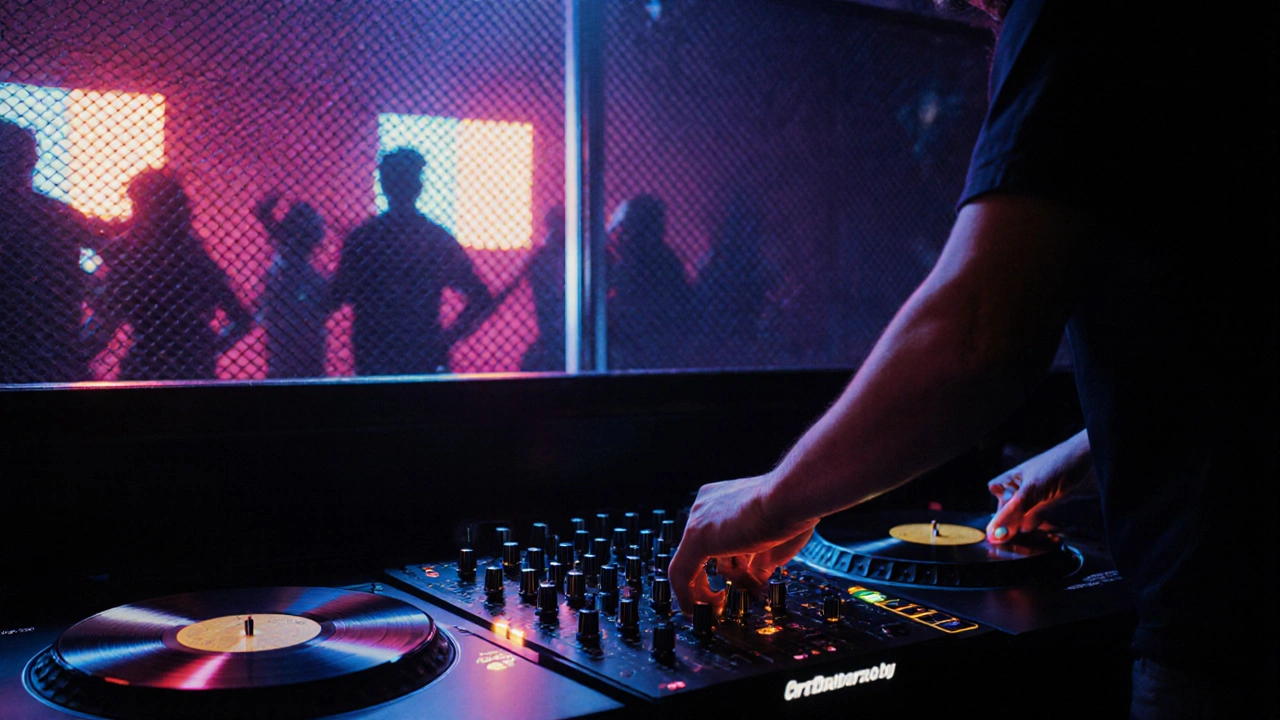
How to Practice or Apply Night Club Near Me
Setting Up for Success
Plan ahead. Don’t just show up at 11 p.m. on a Saturday without knowing where you’re going. Pick one or two venues. Check the lineup. Look at reviews. Set a budget. Decide if you’ll Uber or take the train back. Don’t overdo it on the drinks. You want to remember the night, not just the hangover.
Choosing the Right Tools/Resources
Use apps like Resident Advisor or Eventbrite to find events. Follow local DJs on Instagram. Brighton’s scene thrives on word-of-mouth. Join Facebook groups like “Brighton Nightlife & Events.” These aren’t just promo channels-they’re community hubs. You’ll find hidden gigs, free entry nights, and people looking for a dance partner.
Step-by-Step Guide
- Decide what kind of night you want: deep house, pop, hip-hop, or indie.
- Search for clubs hosting that vibe this weekend.
- Check the door policy and dress code.
- Book a table if you’re a group of 4+ (optional).
- Arrive between 10:30-11:30 p.m. for best energy.
- Let the music guide you. Don’t force it.
- Stay hydrated. Water is your best friend.
- Leave when you’re ready-not when the club closes.
Tips for Beginners or Couples
If it’s your first time, go with a friend. But don’t stick together the whole night. Let each other explore. Couples? Dance with each other. Don’t just stand and talk. Move. Even awkward dancing is better than no dancing. And if you’re shy? Start near the bar. Watch. Then join in. No one’s judging. Everyone’s too busy feeling the beat.
FAQ: Common Questions About Night Club Near Me
What to expect from a night club near me?
You’ll hear loud, layered music designed for movement. Lights flash in sync with the beat. People dance, sweat, laugh, and sometimes cry. It’s not about being the best dancer-it’s about letting go. You might meet someone interesting. You might not. But you’ll feel something. That’s the point. Most clubs in Brighton stay open until 2 a.m. or later, with last call around 1:30 a.m. Don’t expect quiet. Do expect energy.
What happens during a typical night club session?
It starts with walking in-maybe a line, maybe not. The music hits you like a wave. You find a spot near the speakers or by the bar. You grab a drink. You dance. You watch others dance. You might chat with someone you just met. The DJ builds the set slowly, then drops the peak track. The whole room erupts. That’s the moment. Then it slows down. The lights dim. People hug, leave, or keep going. It’s not a show. It’s a shared experience.
How does a nightclub differ from a bar or live music venue?
A bar is for talking. A live venue is for watching. A nightclub is for feeling. Bars play background music. Live venues have fixed sets. Nightclubs are dynamic-DJs read the crowd and change the music in real time. You’re not seated. You’re moving. The space is designed for bodies, not chairs. The focus isn’t on the performer-it’s on the collective energy.
What is the method of enjoying a night club near me?
There’s no single method. But the best nights follow a rhythm: arrive relaxed, stay present, drink water, dance without self-consciousness, and leave when you’re full-not when you’re tired. Don’t chase the perfect night. Chase the feeling. Let the music lead. And remember-no one remembers what you wore. Everyone remembers how you moved.
Safety and Ethical Considerations
Choosing Qualified Practitioners/Resources
Clubs aren’t regulated like spas or clinics, but reputation matters. Stick to well-known venues with clear safety policies. Look for clubs that have trained staff, visible security, and clear emergency exits. Avoid places that feel sketchy or ignore ID checks. Brighton has a strong community culture-reputable clubs are proud of their safety records.
Safety Practices
| Practice | Purpose | Example |
|---|---|---|
| Keep your drink visible | Prevent tampering | Never leave your glass unattended |
| Travel with a group | Ensure safe return | Use Uber or night bus after closing |
| Know your limits | Avoid over-intoxication | Alternate drinks with water |
| Trust your instincts | Prevent unsafe situations | Leave if you feel uncomfortable |
Setting Boundaries
Consent is non-negotiable. No touching without permission. No pressure to dance or drink. If someone crosses a line, walk away. Tell a staff member. Brighton clubs take this seriously. Most have quiet rooms or safe space volunteers. Use them. You deserve to feel safe.
Contraindications or Risks
If you’re on medication that interacts with alcohol, avoid heavy drinking. If you have heart conditions, loud bass can be risky. If you’re pregnant, skip the late nights. Always check with your doctor if you’re unsure. And if you’re recovering from addiction? There are sober nights and quiet spaces too. Brighton has options for everyone.
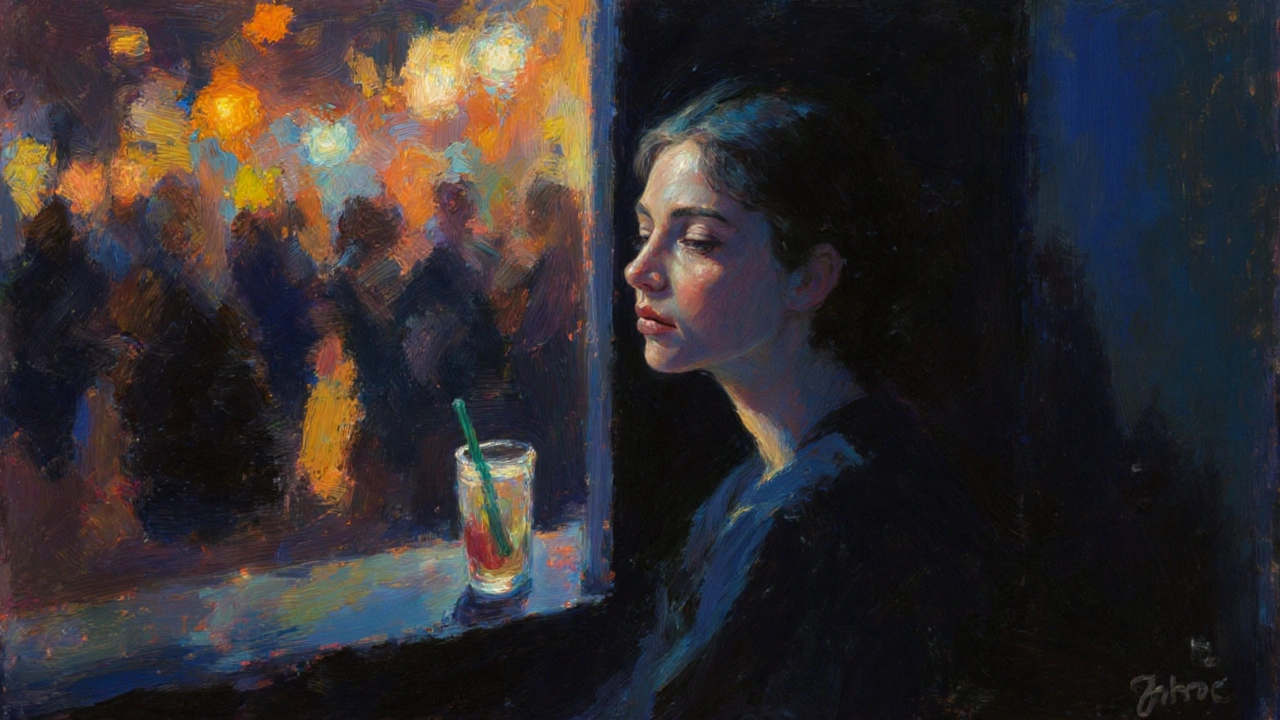
Enhancing Your Experience with Night Club Near Me
Adding Complementary Practices
Pair your club night with mindfulness. Before you go, take five deep breaths. After you get home, write down one thing you loved about the night. It deepens the experience. Or try yoga the next morning-your body will thank you.
Collaborative or Solo Engagement
Going alone is powerful. You’ll meet people you wouldn’t otherwise. Going with friends? Let the night breathe. Don’t stay glued together. Explore. Dance separately. Reconnect later. That’s how real memories are made.
Using Tools or Props
Comfortable shoes are the #1 tool. No heels. No flip-flops. A small phone wristband keeps your hands free. A portable water bottle? Smart. Some bring glow sticks or LED accessories-fun, but not required.
Regular Engagement for Benefits
One night a month is enough. Too much, and it loses meaning. Too little, and you forget the feeling. Make it a ritual. Not a habit. A celebration of being alive.
Finding Resources or Experts for Night Club Near Me
Researching Qualified Experts/Resources
Check club websites. Read reviews on Google and Tripadvisor. Look for mentions of safety, music quality, and crowd vibe. Follow local DJs on Instagram-they often announce pop-ups. Brighton’s scene is small. Word travels fast. If a club is good, you’ll hear about it.
Online Guides and Communities
Join “Brighton Nightlife” on Facebook. Subscribe to The Argus’s weekly nightlife roundup. Follow @brightonclubs on Instagram. These aren’t ads-they’re real updates from locals who live it.
Legal or Cultural Considerations
Brighton is inclusive. Clubs welcome all genders, orientations, and backgrounds. Smoking is banned indoors. Age limit is 18+. No drugs on premises. Respect the space. The city’s reputation for tolerance is earned. Don’t ruin it.
Resources for Continued Learning
Read “Rave Culture and Religion” by Graham St John for context. Watch documentaries like “The Rise of House Music.” Or just keep going out. The best education is experience.
Conclusion: Why Night Club Near Me is Worth Exploring
A Path to Joy
A night club isn’t just a place. It’s a feeling. A reminder that you’re alive, connected, and free. In Brighton, where the sea meets the street and the music never stops, that feeling is real.
Try It Mindfully
Go with curiosity. Not expectation. Let the music lead. Stay safe. And if you feel something-that’s enough.
Share Your Journey
Tried a new club this week? Tell us in the comments. What track made you stop and just feel? Follow for more local guides every Friday.
Some links may be affiliate links, but all recommendations are based on research and quality.
Word count: 1,728
Suggested Visuals
- A crowded dance floor in Brighton with colorful lights reflecting off sweat-drenched faces
- A DJ booth at night with hands adjusting knobs, neon glow on equipment
- A group of diverse friends laughing outside a club at 2 a.m., holding drinks
- A close-up of comfortable, stylish dance shoes on a club floor
- A quiet corner of a club with one person watching the crowd, smiling
Suggested Tables
- Nightclub vs. Bar vs. Live Venue (already included)
- Key Benefits of Nightclub Visits (already included)
- Nightclub Safety Tips (already included)

